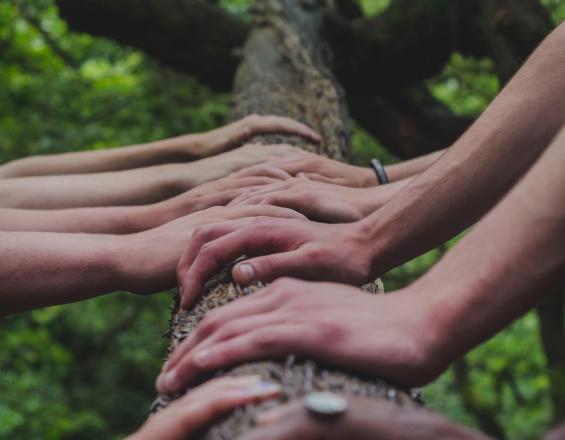Explore 3 exciting opportunities for contributing to efforts that are related to PANORAMA. Get involved!
1) Embracing failures
Let’s be honest, most of us have at some point been involved in a conservation effort that did not go as planned or where the activities implemented simply didn’t lead to the outcomes we were expecting.
While PANORAMA is focused on documenting and communicating success, it is increasingly recognised that learning from failure often plays a key role in achieving eventual success.
Many of you have submitted solutions on the PANORAMA web platform – perhaps the journey to these solutions involved failure and an adaptive approach? Or you have worked on other initiatives that would not qualify as solutions, but still hold valuable lessons? The project has developed a taxonomy of root causes of failure in conservation. This taxonomy is designed to be used as a tool for identifying, recording and discussing failure in a constructive way, where the primary focus is on learning, rather than apportioning blame. To test this taxonomy we are looking for conservation practitioners who have been involved in a conservation effort that they consider to have “failed” in some way.
Relevant examples could include: cases of conservation work that did not meet some or all of their objectives, cases that met their short-term objectives but failed to provide the intended long-term impacts, cases where the intended long-term impacts were met but the intervention did not contribute significantly to achieving these or cases that failed initially but succeeded later on.
If you have a relevant example, please click on this link, review the root causes of failure in the taxonomy, check ALL the root causes of failure that apply to your example and let us know if anything is missing, unclear or obsolete.
The form is completely anonymous and should take around 5 minutes to complete. We would like to have all entries completed by March 31st 2020.
*** Full draft taxonomy ***
If you have any questions please contact Iain Dickson at Birdlife.
2) Call for case studies for a joint transdisciplinary paper
Communicating climate change: Field work experiences in communicating biodiversity and climate-related topics
Concepts like climate change or biodiversity were born and refined in global forums. The respective discourse is being negotiated among politicians, scientists, and the usually highly educated segments of civil society. The concepts are based on a post-enlightenment consensus that humans and nature follow different logics. However, anyone who conducted transdisciplinary research or organized community-focused activities (including development assistance in the Global South) might have noticed the stark asymmetries while communicating topics related to climate or biodiversity on a local level.
We are seeking to compose a paper (planned for submission to Ecology and Society or a similar journal) that shall present case study experiences in the communication of climate-and/or biodiversity-related issues on the local level during field work in different countries and cultural settings. Our contribution shall compare the different experiences and provide a first step towards the establishment of an international understanding of the various ways how to communicate these concepts – and the challenges that arise with it. The study will assist policymakers, development professionals, and academics who perform and communicate related field work.
How did you deconstruct the term climate change or biodiversity? How did you link it up to the local concepts you encountered? Which questions struck you as worth considering?
Please contact Regine Schoenenberg & Dawud Ansari if you wish to take part in our project or in case you have any questions. We will collect expressions of interest until March 15th and then come up with a final list of case studies / authors.
3) We Value Nature
We Value Nature is an EU Horizon 2020-funded three-year campaign (November 2018 - October 2021) supporting businesses and the natural capital community across Europe with the aim of making valuing nature the new normal for business. The campaign is reinforcing and boosting the work of the Capitals Coalition, h+elping businesses make smarter decisions that benefit themselves, society and planet as a whole.
We Value Nature is currently carrying out together with Ecoacsa a pilot project to strengthen collaboration between the public and private sector through assessing the options, benefits and best practices of restoring degraded land in a specific ecosystem in the Mediterranean area, Cabo de Gata-Níjar (Andalusia, Spain), by reinforcing the integration of natural capital in decision-making processes.
We are pleased to invite you to share our call for case studies within your network for ecotourism, eco-agriculture, agroforestry and ecosystem restoration projects that have implemented natural capital and ecosystem services approaches. A selection of projects will be profiled as best practices of the different natural capital approaches that can benefit local stakeholders from the public and private sector and society. The selected projects must have been carried out in similar ecoregions or in the proximity to the pilot area facing similar ecosystem related challenges as Cabo de Gata-Níjar (click on the following link for further details).
For further information, please contact jesuscarraco@ecoacsa.com
